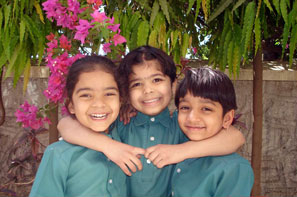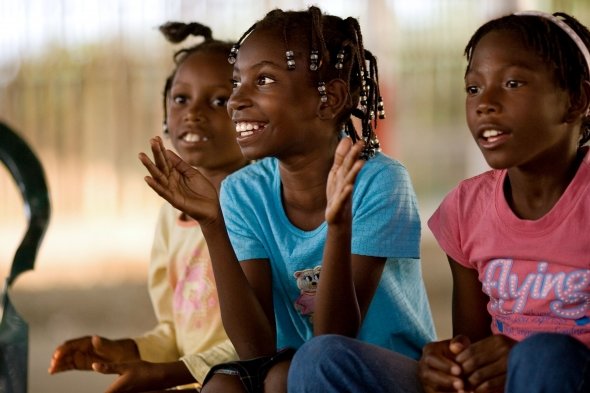Bofokule – Suriname
Bofokule is a village of 300 inhabitants in the interior of Suriname, five hour cruise upstream on the Suriname River. After the civil war second half of the eighties, there was nothing in this area, everything was broken and teachers had fled to the city. The inhabitants of the Bahá’ís Bofokule have asked for help for the foundation of a school. This school is now, there are teachers and some houses for teachers, and also a lot of problems and deficiencies. Agensea helped build some parts.
Zambia
The welfare of the community by encouraging you to prepare for social action.
The main objective of the program is to large numbers of young people’s capacities and skills that enable them to be the center of social and economic development of their society. Many communities in Zambia face social and economic challenges that require a large number of skilled and knowledgeable people who can enter. This program increases the capacity to take responsibility for social transformation and helps the participants to the required knowledge, skills, attitudes and mental skills to acquire.
The program works at the community level groups with peers who learn together and serve. Language, math, science, engineering and service are the basis for the development of the “capabilities” (the “ability to use your capacities”). More important is the unity and solidarity in the group, willingness to help each other, community, the relationship with the supervisor, and especially the service projects that participants start with the members of their community. The projects cover areas such as the preparation of very young children in their school career, environment, small-scale sustainable agriculture, cultivation and planting of trees, health and hygiene, waste disposal, the things that are most needed in the community in which they live, and always in consultation with all stakeholders.
In the field of agriculture, for example, the problem of declining revenue from the land, the expensive fertilizers, and the loss of traditional knowledge about the production of a wide variety of crops. One learns on a small scale to obtain a high yield while the fertility of the soil remains the same or is improved, and one learns to do research into the local potential in relation to such environmental and health problems. It is a program of two-and-a-half years and although only the first batch of 29 students has been delivered, there were in the past year more than 500 applications of which 350 could be placed.



